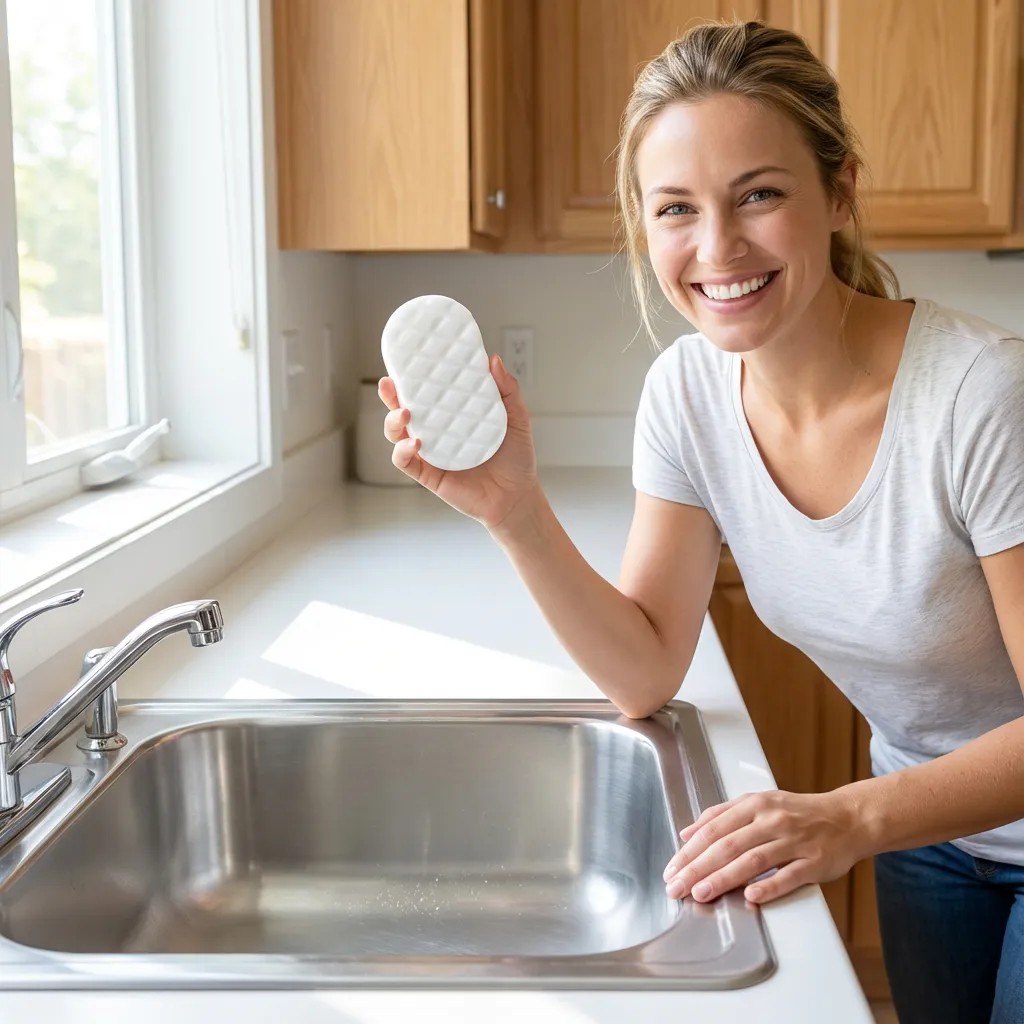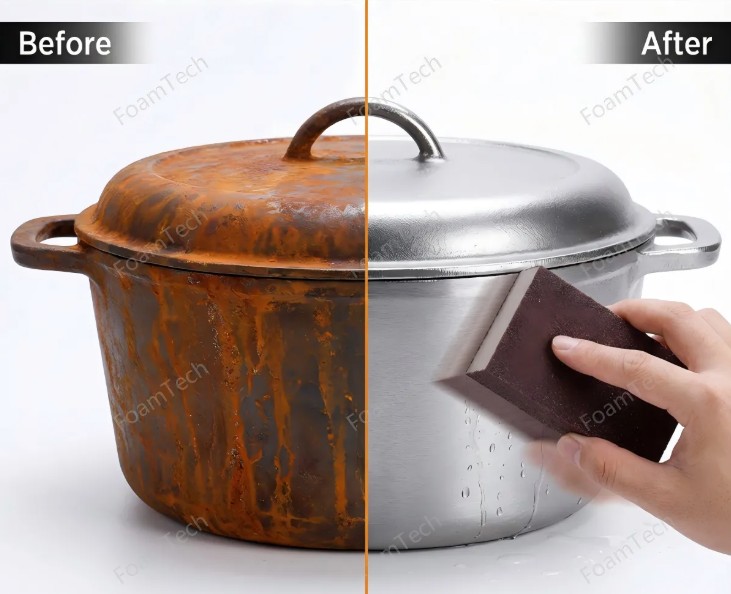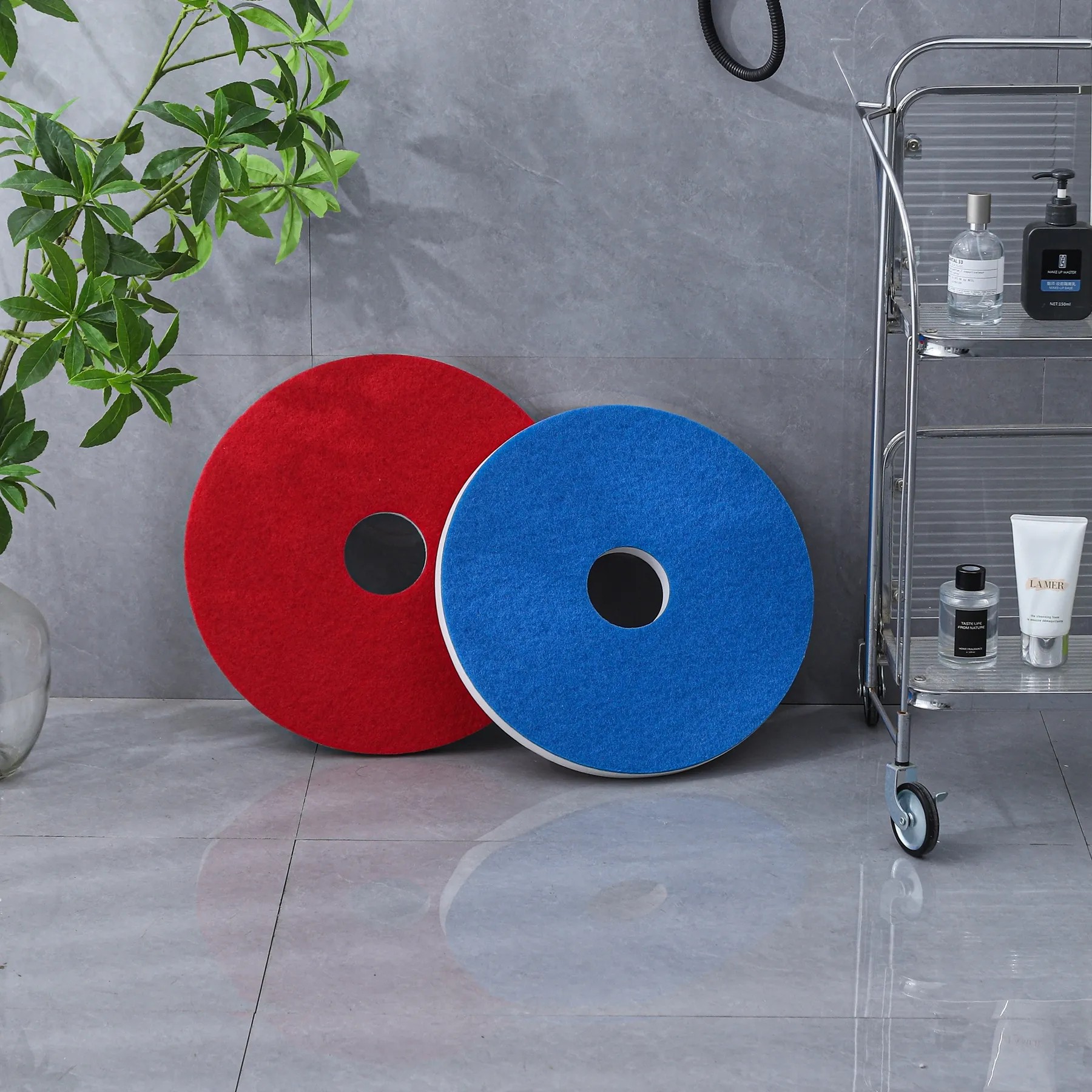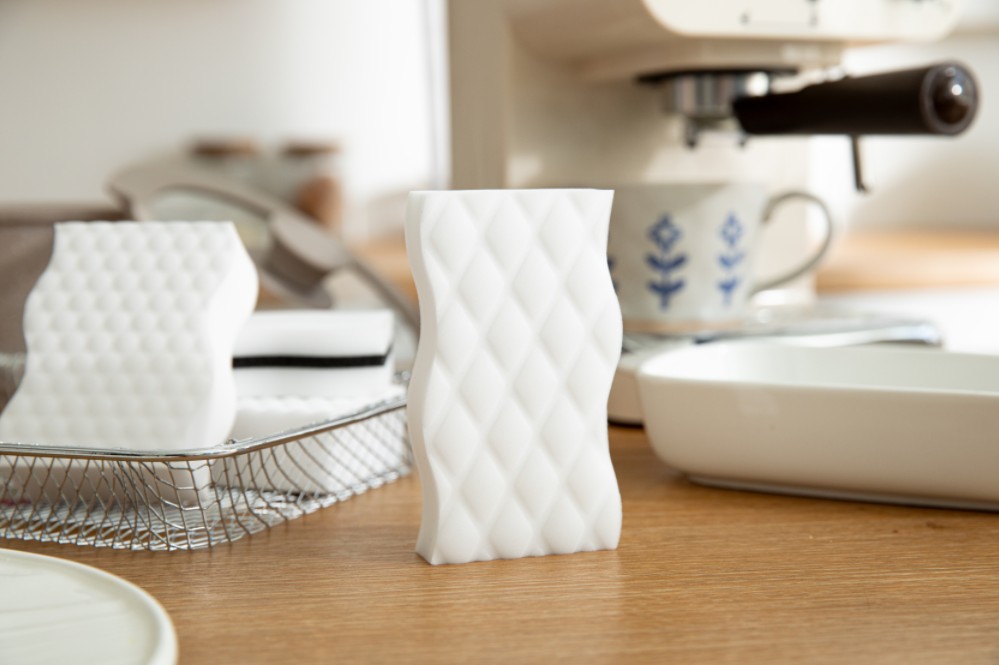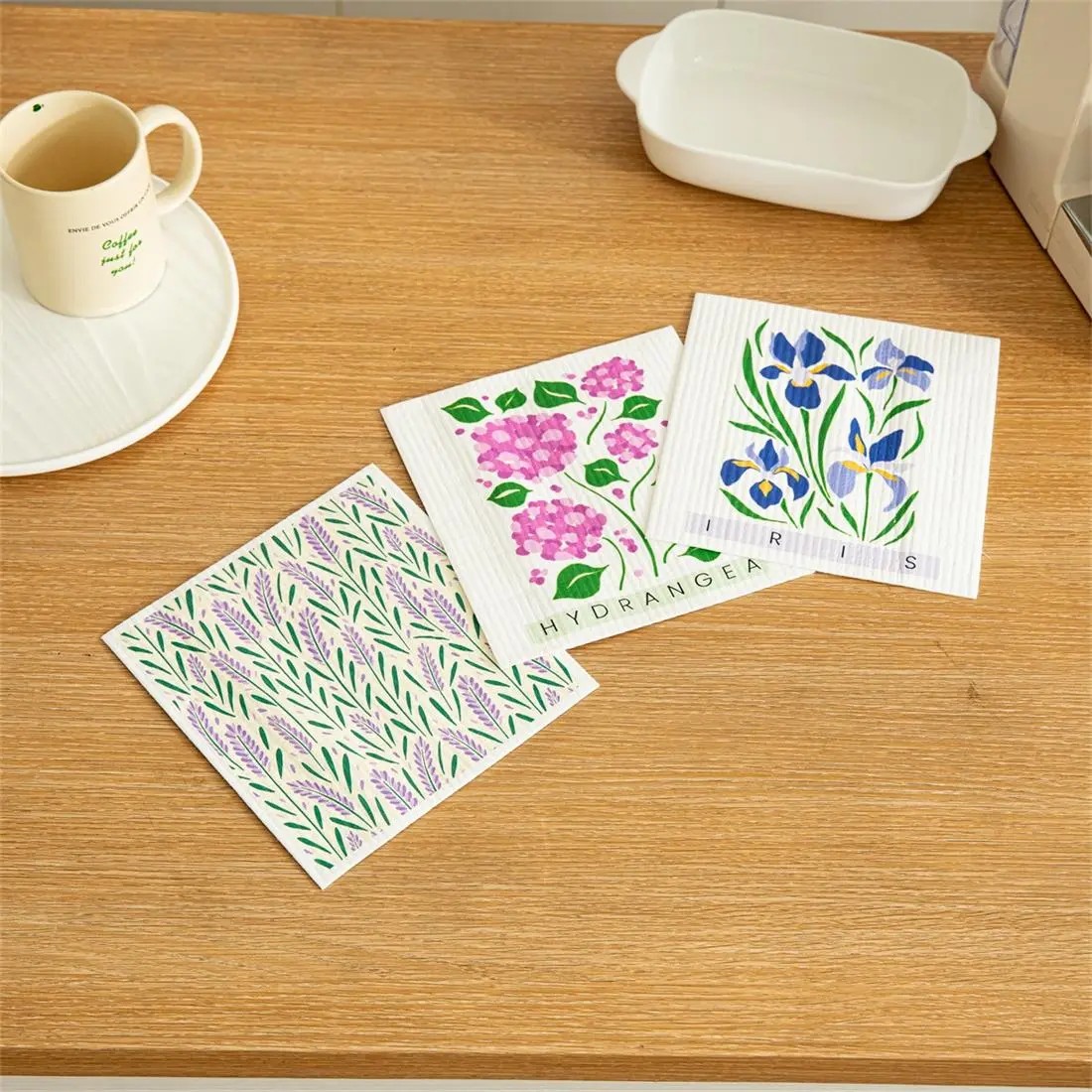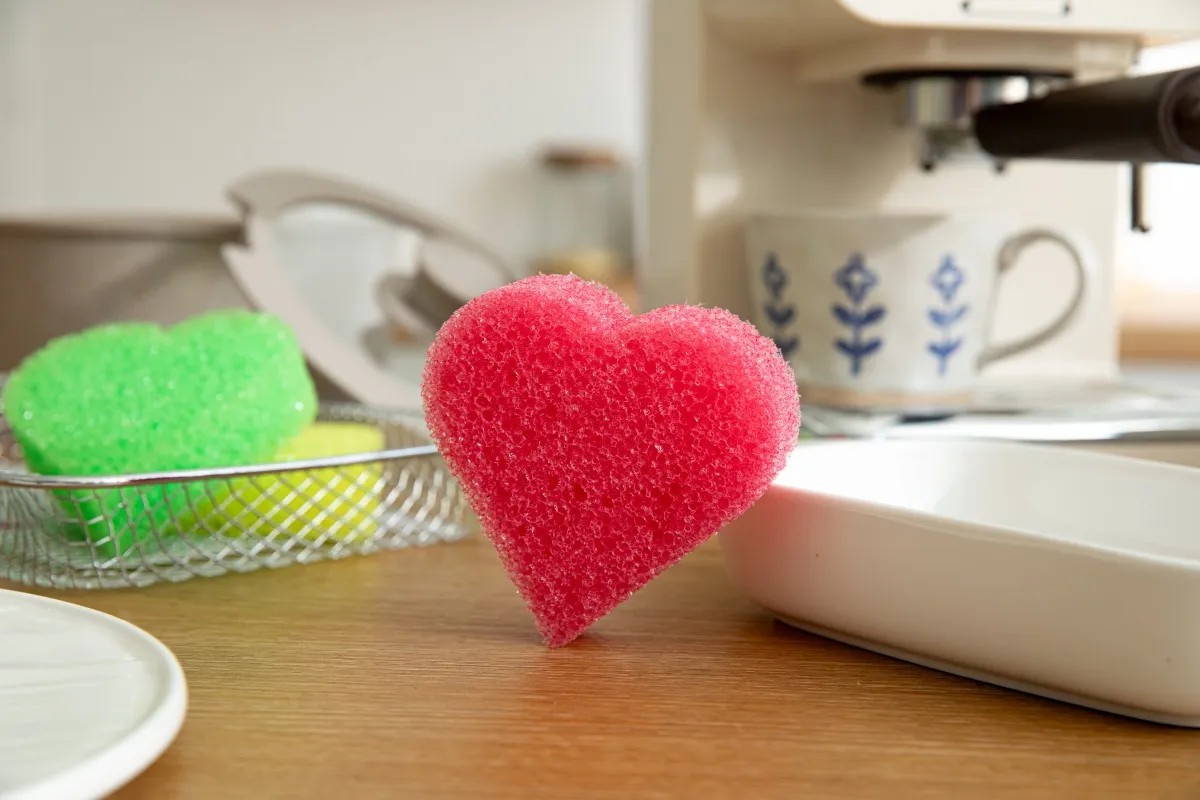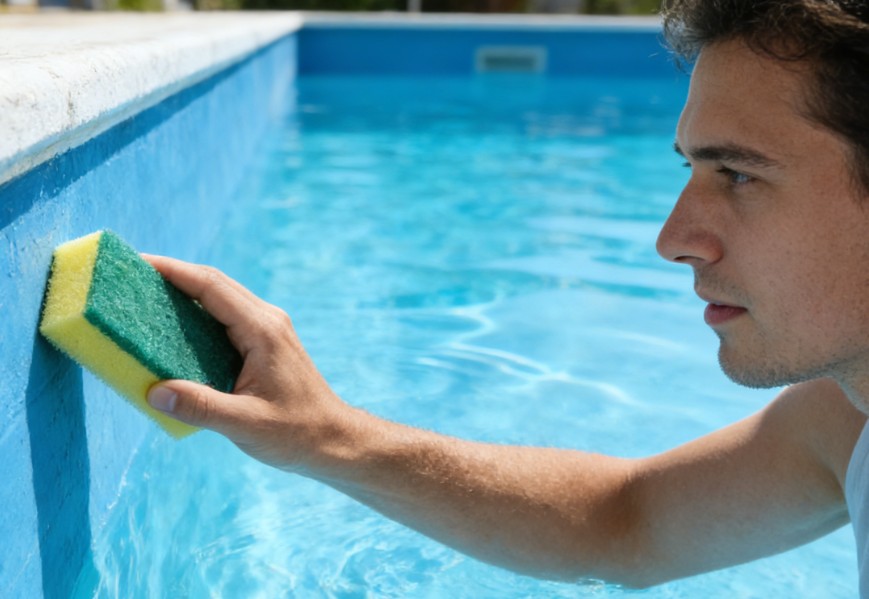What Makes a Scrub Sponge Ideal or Risky for Deep Sink Cleaning
2025-10-30

Stainless steel sinks take a beating in busy kitchens. Keeping them sparkling without scratches isn't just about hard work. You need the right scrub sponge. Pick a bad one, and you might see tiny marks or worse over time. Those little flaws add up fast. From faint scratches to leftover soap bits, a poor choice can ruin your sink's sleek look. Nobody wants that hassle. For a top-tier tool that cleans tough but stays gentle, check out FoamTech. Their scrub sponges use clever materials, built on years of melamine foam expertise.
What Are the Key Factors That Define an Ideal Scrub Sponge for Deep Sink Cleaning?
Choosing a great scrub sponge means checking how it works with your sink in real life. A few big things decide if it helps or hurts the metal surface.
Material Composition and Surface Compatibility
The sponge’s core material sets the stage. Melamine foam ones clean with tiny, scratch-free scrapes. They rely on small holes, not harsh soaps. Under a powerful microscope, the foam shows 99% open space. Each hole is about 5 to 20 microns wide. This grabs food bits and gunk quick. Plus, it’s gentle on shiny metal. No jagged edges to stress about.
This foam gets along with many surfaces too. For example, on marble floors, it’s cut into pads for polishing machines. Works like a charm. That same precision helps stainless steel sinks keep their shine. A chef I saw in a diner used one on a worn-out sink. A few swipes, and it looked fresh. Hard to believe something so simple does that.
Abrasiveness Level and Scratch Risk
Scratches are a big worry for stainless steel. Old-fashioned pads rub too rough. They mark up brushed or glossy finishes. But melamine foam? Its rub factor is only 0.15 on car paint, compared to 0.42 for regular pads. So it slides smoothly on sink surfaces. Fewer chances of annoying lines.
Imagine scrubbing off burnt eggs from the sink bottom. A harsh pad might dig into the metal. This foam lifts the mess clean. Safe and fast. From watching pros, that’s what makes daily cleaning easier.
Temperature Sensitivity and Cleaning Efficiency
A clever sponge adjusts to heat. Warm water makes some soften a tad. That lowers harsh rubbing. It grabs stuck bits better too. Deep sinks hold grease in corners. This feature works wonders there. No need to press hard. Let the warmth help out.
How Can Scrub Sponges Cause Damage to Stainless Steel Sinks?
Bad sponges can trick you. They seem okay at first. But after weeks, problems pop up. Knowing the risks helps you avoid them and save your sink.
Micro-Scratching from Harsh Abrasives
Rough bits in cheap sponges scrape slowly. You don’t notice the tiny lines right away. Over time, they spread. The sink looks cloudy. Dirt sticks in those grooves. Rust sneaks in quicker too.
Scrubbing hard with gritty pads or powders? That’s trouble. It chews up the surface fast. Especially if you don’t match the tool to the metal. A restaurant owner I heard about replaced his whole sink after using bad pads for months. Cost him a ton. Tough lesson.
Chemical Residue Retention and Corrosion Risk
Some sponges hold onto cleaners like glue. Funny thing—they’re sponges, so no surprise. They keep suds even after rinsing. Those bits linger on the sink. They wear down the thin layer that stops rust. Over time, pits form. Ugly spots that stick around.
Avoid bleach or anything with chloride. It works with the sponge to pit the metal. Bad for busy places like home kitchens or diners. Rinse well, but clingy sponges make it tough.
Incompatibility with Sink Finish and Texture
Sinks come brushed or polished. Each handles rubbing differently. A stiff sponge on a smooth sink? It ruins the even look. Feels rough after. Coarse tools don’t fit every type. Choose wisely, or you’ll regret it.
Why Is Temperature Sensitivity Important in a Scrub Sponge?
Heat-smart sponges shift as you clean. That’s a big deal for deep sinks. Grime loves hiding in those tight spots. A flexible tool gets there easy.

Heat-Responsive Softening for Surface Protection
Dry, this foam hits Shore A45 on hardness. Wet with warm water, it drops to Shore A28. Softer now. It bends easily. No sharp pushes that nick the finish. Still scrubs strong. Perfect mix.
Enhanced Debris Removal with Temperature Change
Hot water loosens old food scraps. Add a sponge that gives a little. Boom—stuff comes off fast. Less pulling needed. Saves your arms on big jobs.
Reduced Need for Harsh Chemicals During Cleaning
These sponges work great with plain water. Soak, scrub, rinse, reuse. No need for fancy cleaners. Perfect for places like school cafeterias or clinics. Where you want less strong stuff. Keeps things safe and eco-friendly.
What Makes FoamTech’s Dual-Layer Temperature-Sensitive Scrub Sponge a Reliable Choice?
Need a sponge that holds up? The Dual-Layer Temperature-Sensitive Scrub Sponge delivers. Built smart for tough tasks.

Dual-Layer Structure for Balanced Abrasion and Safety
Two layers here. The top one scrubs light but sure. The bottom keeps it sturdy. Holds up through many washes. No over-rubbing the sink. Tough enough for heavy jobs, like cleaning pots all day.
Smart Temperature-Responsive Material for Versatile Use
Cold grease or warm soap? It tackles both. Softens just right with heat. Stays firm when cold. Works steady no matter the mess.
Ergonomic Design Supporting Deep Sink Reach
Long shape reaches tight spots. No wrist twisting. Fewer slip-ups that cause dings. Great for overflow drains packed with gunk.
How Does the Special Shape Temperature-Sensitive Scrub Sponge Improve Cleaning Efficiency?
Square sponges miss deep sink curves. The Special Shape Temperature-Sensitive Scrub Sponge solves that. Clever curves make it a champ.

Contoured Form for Precision in Hard-to-Reach Areas
Rounded edges fit sink walls. Hit drain edges or faucet bases perfectly. Grime hides there most. Flat sponges skip those spots. This one gets every bit. Hotel cleaners use it to keep basins shiny. Cuts cleaning time in half, they say.
Adaptive Texture for Gentle Yet Effective Scrubbing
Heat makes it flex too. Soft under warm water. Safe on shine, tough on stains. No compromises.
Durable Construction for Extended Use in Commercial Settings
Made from strong melamine parts. Holds tight, lasts long. High tensile strength. Clean with water alone. Soak and reuse. Fits busy places like diner kitchens or office break rooms. One sponge lasts weeks without breaking.
What Should Professionals Consider When Choosing a Scrub Sponge for Stainless Steel Maintenance?
Pros need to think long-term. Not just today’s clean. Consider the big picture. Hygiene rules matter a lot.
Compatibility with Cleaning Agents and Disinfectants
Choose one that shrugs off soaps. Doesn’t hold bad stuff. Handles pH from 1 to 14. Acids or bases, no problem. Key for labs or kitchens with heavy cleaners.
Longevity and Cost-Efficiency in Daily Operations
Replacements add up fast. Pick ones that last dozens of rounds. Dry quick after use. Stops mold. Pair with tough foam like melamine. Saves money over time.
Compliance with Hygiene Standards in Industrial Environments
Look for stamps like FDA approval or ISO marks. ISO 9001 and FDA certified? Top-notch. Means it passes strict checks for food plants or clinics. Gives peace of mind in tough rules.
FAQ
Q1: Can I use any scrub pad on my stainless steel sink?
A: No, abrasive pads might scratch the surface for good. Go for low-friction stuff like melamine foam instead.
Q2: How does temperature sensitivity help during scrubbing?
A: It lets the sponge soften in warm water. Cuts down on damage. Makes stains come off easier.
Q3: Is it safe to clean only with water using these sponges?
A: Yes. Clean with water alone. Soak and reuse. They use their structure, not chemicals, to clean well.
Stainless steel sinks take a beating in busy kitchens. Keeping them sparkling without scratches isn't just about hard work. You need the right scrub sponge. Pick a bad one, and you might see tiny marks or worse over time. Those little flaws add up fast. From faint scratches to leftover soap bits, a poor choice can ruin your sink's sleek look. Nobody wants that hassle. For a top-tier tool that cleans tough but stays gentle, check out FoamTech. Their scrub sponges use clever materials, built on years of melamine foam expertise.
What Are the Key Factors That Define an Ideal Scrub Sponge for Deep Sink Cleaning?
Choosing a great scrub sponge means checking how it works with your sink in real life. A few big things decide if it helps or hurts the metal surface.
Material Composition and Surface Compatibility
The sponge’s core material sets the stage. Melamine foam ones clean with tiny, scratch-free scrapes. They rely on small holes, not harsh soaps. Under a powerful microscope, the foam shows 99% open space. Each hole is about 5 to 20 microns wide. This grabs food bits and gunk quick. Plus, it’s gentle on shiny metal. No jagged edges to stress about.
This foam gets along with many surfaces too. For example, on marble floors, it’s cut into pads for polishing machines. Works like a charm. That same precision helps stainless steel sinks keep their shine. A chef I saw in a diner used one on a worn-out sink. A few swipes, and it looked fresh. Hard to believe something so simple does that.
Abrasiveness Level and Scratch Risk
Scratches are a big worry for stainless steel. Old-fashioned pads rub too rough. They mark up brushed or glossy finishes. But melamine foam? Its rub factor is only 0.15 on car paint, compared to 0.42 for regular pads. So it slides smoothly on sink surfaces. Fewer chances of annoying lines.
Imagine scrubbing off burnt eggs from the sink bottom. A harsh pad might dig into the metal. This foam lifts the mess clean. Safe and fast. From watching pros, that’s what makes daily cleaning easier.
Temperature Sensitivity and Cleaning Efficiency
A clever sponge adjusts to heat. Warm water makes some soften a tad. That lowers harsh rubbing. It grabs stuck bits better too. Deep sinks hold grease in corners. This feature works wonders there. No need to press hard. Let the warmth help out.
How Can Scrub Sponges Cause Damage to Stainless Steel Sinks?
Bad sponges can trick you. They seem okay at first. But after weeks, problems pop up. Knowing the risks helps you avoid them and save your sink.
Micro-Scratching from Harsh Abrasives
Rough bits in cheap sponges scrape slowly. You don’t notice the tiny lines right away. Over time, they spread. The sink looks cloudy. Dirt sticks in those grooves. Rust sneaks in quicker too.
Scrubbing hard with gritty pads or powders? That’s trouble. It chews up the surface fast. Especially if you don’t match the tool to the metal. A restaurant owner I heard about replaced his whole sink after using bad pads for months. Cost him a ton. Tough lesson.
Chemical Residue Retention and Corrosion Risk
Some sponges hold onto cleaners like glue. Funny thing—they’re sponges, so no surprise. They keep suds even after rinsing. Those bits linger on the sink. They wear down the thin layer that stops rust. Over time, pits form. Ugly spots that stick around.
Avoid bleach or anything with chloride. It works with the sponge to pit the metal. Bad for busy places like home kitchens or diners. Rinse well, but clingy sponges make it tough.
Incompatibility with Sink Finish and Texture
Sinks come brushed or polished. Each handles rubbing differently. A stiff sponge on a smooth sink? It ruins the even look. Feels rough after. Coarse tools don’t fit every type. Choose wisely, or you’ll regret it.
Why Is Temperature Sensitivity Important in a Scrub Sponge?
Heat-smart sponges shift as you clean. That’s a big deal for deep sinks. Grime loves hiding in those tight spots. A flexible tool gets there easy.

Heat-Responsive Softening for Surface Protection
Dry, this foam hits Shore A45 on hardness. Wet with warm water, it drops to Shore A28. Softer now. It bends easily. No sharp pushes that nick the finish. Still scrubs strong. Perfect mix.
Enhanced Debris Removal with Temperature Change
Hot water loosens old food scraps. Add a sponge that gives a little. Boom—stuff comes off fast. Less pulling needed. Saves your arms on big jobs.
Reduced Need for Harsh Chemicals During Cleaning
These sponges work great with plain water. Soak, scrub, rinse, reuse. No need for fancy cleaners. Perfect for places like school cafeterias or clinics. Where you want less strong stuff. Keeps things safe and eco-friendly.
What Makes FoamTech’s Dual-Layer Temperature-Sensitive Scrub Sponge a Reliable Choice?
Need a sponge that holds up? The Dual-Layer Temperature-Sensitive Scrub Sponge delivers. Built smart for tough tasks.

Dual-Layer Structure for Balanced Abrasion and Safety
Two layers here. The top one scrubs light but sure. The bottom keeps it sturdy. Holds up through many washes. No over-rubbing the sink. Tough enough for heavy jobs, like cleaning pots all day.
Smart Temperature-Responsive Material for Versatile Use
Cold grease or warm soap? It tackles both. Softens just right with heat. Stays firm when cold. Works steady no matter the mess.
Ergonomic Design Supporting Deep Sink Reach
Long shape reaches tight spots. No wrist twisting. Fewer slip-ups that cause dings. Great for overflow drains packed with gunk.
How Does the Special Shape Temperature-Sensitive Scrub Sponge Improve Cleaning Efficiency?
Square sponges miss deep sink curves. The Special Shape Temperature-Sensitive Scrub Sponge solves that. Clever curves make it a champ.

Contoured Form for Precision in Hard-to-Reach Areas
Rounded edges fit sink walls. Hit drain edges or faucet bases perfectly. Grime hides there most. Flat sponges skip those spots. This one gets every bit. Hotel cleaners use it to keep basins shiny. Cuts cleaning time in half, they say.
Adaptive Texture for Gentle Yet Effective Scrubbing
Heat makes it flex too. Soft under warm water. Safe on shine, tough on stains. No compromises.
Durable Construction for Extended Use in Commercial Settings
Made from strong melamine parts. Holds tight, lasts long. High tensile strength. Clean with water alone. Soak and reuse. Fits busy places like diner kitchens or office break rooms. One sponge lasts weeks without breaking.
What Should Professionals Consider When Choosing a Scrub Sponge for Stainless Steel Maintenance?
Pros need to think long-term. Not just today’s clean. Consider the big picture. Hygiene rules matter a lot.
Compatibility with Cleaning Agents and Disinfectants
Choose one that shrugs off soaps. Doesn’t hold bad stuff. Handles pH from 1 to 14. Acids or bases, no problem. Key for labs or kitchens with heavy cleaners.
Longevity and Cost-Efficiency in Daily Operations
Replacements add up fast. Pick ones that last dozens of rounds. Dry quick after use. Stops mold. Pair with tough foam like melamine. Saves money over time.
Compliance with Hygiene Standards in Industrial Environments
Look for stamps like FDA approval or ISO marks. ISO 9001 and FDA certified? Top-notch. Means it passes strict checks for food plants or clinics. Gives peace of mind in tough rules.
FAQ
Q1: Can I use any scrub pad on my stainless steel sink?
A: No, abrasive pads might scratch the surface for good. Go for low-friction stuff like melamine foam instead.
Q2: How does temperature sensitivity help during scrubbing?
A: It lets the sponge soften in warm water. Cuts down on damage. Makes stains come off easier.
Q3: Is it safe to clean only with water using these sponges?
A: Yes. Clean with water alone. Soak and reuse. They use their structure, not chemicals, to clean well.
